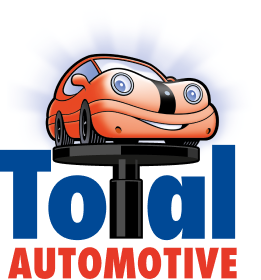Regarding vehicle safety, few things are more crucial than ensuring that your car's advanced safety systems are correctly calibrated. In Buffalo, where the harsh winters and busy roads pose specific challenges for motorists, knowing how to find the top car safety system calibration company can be crucial. Whether or not you’ve just experienced a collision, replaced your windshield, or just want to ensure your vehicle is operating at its peak, choosing the appropriate service is critical for your safety and the safety of other drivers on the road.
Now, how do you navigate the landscape of calibration services to make an educated decision? With various options at your disposal, it is essential to know what to look for in a reliable ADAS calibration service. From acknowledging the importance of certification to spotting the red flags of inferior service, being knowledgeable is your greatest defense against possible hazards. Let us explore the top qualities of reliable calibration companies in Buffalo, what to expect during the calibration process, and why accurate calibration of your vehicle's safety system can significantly impact avoiding accidents and overall driving security.
Deciding on the Right Calibration and Adjustment Service
As you picking a automobile vehicle safety technology calibrating company in Buffalo, it is crucial to emphasize dependability and expertise. Look for a company that has a good standing in the local area and positive customer reviews. Such information can provide an idea into their level of service and technical proficiency. A dependable calibration company should also be transparent about their methods and willing to answer any inquiries you may have about their procedures and background.
Another key factor is credentials. Ensure that the calibration service employs licensed ADAS specialists who know the nuances of modern driver-assistance systems. This is vital not only for the safety of your car but also for guaranteeing adherence with regulatory requirements. A certified technician will know how to use original equipment manufacturer approved tools properly, which is critical for accurate calibration. Verifying whether the provider follows the recommended protocols for calibrating can assist you evaluate their commitment to quality.
Finally, consider the equipment and instruments used by the calibrating company. State-of-the-art equipment plays a major role in ensuring precise adjustment. Ask about the types of equipment they use and whether they have the resources for both stationary and moving adjustment methods. A service that invests in the newest tools is more apt to provide high-quality service, guaranteeing that your vehicle's safety systems function effectively and efficiently.
Grasping the Tuning Process
The calibration process for ADAS (Advanced Driver Assistance Systems) is essential for guaranteeing the safety aspects of a car are functioning properly. It involves configuring the detectors and optical devices that recognize hindrances, maintain lane adherence, and execute automatic braking systems. Calibration is usually needed after events such as windshield changes, accidents, or changes in vehicle height due to tire modifications. Understanding Total Automotive helps car possessors understand the importance of picking a qualified service provider.
There are a couple of main methods used for calibrating ADAS: fixed and dynamic. Stationary calibration requires using designated devices to adjust the detectors in a controlled environment, usually demanding accurate alignment and orientation. Dynamic adjustment, on the contrary, tests the system while the vehicle is in drive, permitting the monitoring systems to adapt to real-life scenarios. Both aim to guarantee that the safety systems are accurately calibrated to identify dangers and respond appropriately, thereby minimizing accident risks.
It is important to realize that appropriate adjustment is not a single occurrence but an continuous need. Aspects such as wear and tear, changes in vehicle structure, or even system updates can impact the efficacy of these security mechanisms. Total Automotive and tuning guarantee that the automobile's safety systems remain reliable and conform with safety regulations. By understanding the adjustment procedure, automobile possessors can better evaluate their options and push for necessary checks, encouraging safer.
The Significance of Accurate Calibration
Accurate adjustment of your car’s safety systems is essential for guaranteeing that advanced driver-assistance systems (ADAS) perform effectively. When these systems, such as lane assist notifications or autonomous emergency braking, are not calibrated correctly, they can lead to incorrect or delayed responses during key driving scenarios. This misalignment can significantly heighten the risk of accidents, negating the very purpose of these safety features. Therefore, understanding the importance of calibration cannot be undervalued, as it directly impacts your safety and that of other road users.
In addition to enhancing safety, proper calibration also helps maintain the dependability and performance of your vehicle's safety features. Many modern vehicles rely on a network of sensors and cameras to operate safely. If any of these components are miscalibrated, it can cause system failures or unexpected behavior. Regular calibration checks ensure that all systems are functioning as intended and can often stop larger repairs in the future. It is a proactive approach that saves vehicle owners both time and money in the big picture.
Finally, choosing a reputable calibration service is essential not only for your vehicle's safety but also for upholding the warranty and insurance requirements. Many manufacturers recommend specific calibration procedures through certified services. Using a company that adheres to these standards ensures that your vehicle remains in compliance and that you uphold your protection under warranty and insurance policies. Thus, committing to proper calibration is not just an option but a necessity for any vehicle owner who prioritizes safety.

